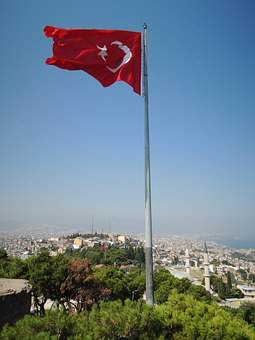It’s a sign of the times that it is hardly surprising that Christmas markets in Western Europe and an upscale nightclub’s New Years’ celebrations in Istanbul were attacked by terrorists over recent days, with the “usual” reactions. There is a movement out there, which is perhaps not always formally organized, but which shares a common worldview, methods and goals. Interestingly, a report in CNN states that while Islamic State has claimed responsibility for the attack in Istanbul, the claim cannot be verified in the usual way. It’s a good question what difference it makes whether the attacker or attacker was connected to Islamic state, as the attacker’s methods and goals were the same as that organization.
A recent succession of events in Turkey is giving that country a reputation as a dangerous place. A coup or coup-style incident, several major terror attacks, and a democracy that cannot reasonably be called that anymore, have produced a cumulative effect with tourist numbers declining sharply over the past two years. On the other hand, the Turkish Lira has become very cheap relative to most other currencies, and the country boasts luxury holiday resorts offering excellent value for money and free sunshine. Of course, nobody would be surprised if next week or next month one of these resorts were targeted for attack, as for the terrorists killing visiting westerners and harming Turkey’s tourist industry would be killing two birds with one stone.
We can all hope that the security situation in Turkey will improve, but for many reasons Turkey is a very attractive target for Islamic State, and this is unlikely to change any time soon, even though Islamic State has very little chance of achieving any kind of strategic victory there or even winning any significant number of recruits. It will instead attempt to gain leverage against the policies of the Turkish government, which might have a strong bearing on whether Islamic State can survive in the future as a territorial entity adjacent to Turkey.

